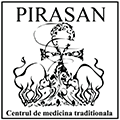Neurosis is a term used in defining a number of pathological manifestations of the nervous system, manifestations that disturb the psychic balance and trigger a number of neurotic behaviors, as a result of over strain or psychic traumas. Neuroses are born from a psychic conflict caused by events occurred in the patient’s past.
They express the individual’s inadaptation to the life conditions at that time (social, family and professional background; incapacity to meet the society’s requirements, incapacity to achieve the objectives that he set for himself etc.).
From an organic point of view, neurosis generates a psychic tension with a negative impact upon the whole body (it disturbs the inter-organic relationships, the metabolic changes and the bodily functions). The patient is aware of the deterioration of his psychic condition; he tries to find solutions to restore the psycho-affective balance.
The specific types of neurosis are differentiated depending on the manifestations. Thus, the following types will be distinguished:
- anxiety neurosis (or psychasthenia; it has such symptoms as fear or continuous inquietude, insomnias, fear of death, suffocation, perspiration, vertigoes, quivering with extremities growing cold, abdominal cramps, sensation of heart arrest, fear of sickness, photo phobia)
- asthenic neurosis (or neurasthenia; sleep disorders, fatigue and weakness at wakening, insomnias, cephalgia, vertigo, lump in the throat, suffocation fits or breathing disorders, continuous fatigue – asthenia and lack of energy, concentration and memory disorders, neuralgias, numbness and tingling in the limbs, irritability fits, nervousness, emotional hypersensitivity and low tolerance to noise)
- hysterical neurosis (manifested by hysterical episodes or fits, triggered under strong stress, ones that are similar to the epileptic attacks. Yet the patient is semi-conscious; he reacts to painful stimuli; he remembers the hysterical episode and his pupils react to luminous stimuli)
- visceral-vegetative neurosis (or cardiac neurosis); it comprises such cardiac manifestations as palpitations,tachycardia, precordial pains, superficial breathing, asthenia, dyspnea, abdominal bloating and constipation)
Treatment
The fact that they are aware of their condition and that they wish to recover their inner balance is an advantage for the patients suffering from neurosis in getting healthy. In the treatment, it is very important to stimulate the oxygenation of the cerebral area responsible for the processes of self-evaluation and building of self-appreciation. By improving the respective oxygenation processes, the patient’s psychic will be relaxed and the disturbed cerebral functions will be restored within optimum parameters.
The Tibetan acupuncture techniques employed, acupuncture and medicinal herbs, will also treat the existing organic disorders. The medical psychological counselling sessions help the patient reassess his own forces, build objectives that he can attain by his own abilities, find his own limitations and ways to go beyond them, make for himself a realistic picture of the reality he lives in and find solutions to the problems he faces. By rebuilding his self image and the way he relates to the exterior, the patient will regain confidence in himself and in his capacity to evolve so as to feel accomplished and content with his own person.

